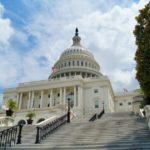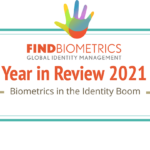In a move meant to help keep communities safe during the ongoing COVID-19 pandemic, two of Australia’s most populous states have announced trials of a system that will use facial recognition software to allow police to track people who are supposed to be quarantining at home. The move has already sparked controversy, with Reuters reporting that “the vast majority of the country’s population” are opposed to the programs.

The two states in question — New South Wales (NSW), and Victoria — are home to Sydney and Melbourne, which make up more than half of Australia’s population of 25 million.
The system works by having people who have been asked to quarantine to respond to a series of random checks by taking a selfie in their designated home quarantine address. The software uses both facial recognition and location data to verify that the image is in fact the individual in question, and that they are indeed at home.
Police may also conduct a follow-up visit to the designated location to confirm the results of the selfie check.
The trials, which are being conducted by tech firm Genvis Pty Ltd., are on a voluntary basis using software developed by the Perth-based startup in 2020 with the help of Western Australia-based police in order to help enforce local pandemic restrictions regarding movement.
The last few years have seen widespread adoption of facial recognition technology throughout Australia, for a variety of purposes.
Recently, the government of South Australia passed a law that requires the use of the technology in many gambling establishments, with more than 230 such businesses reportedly already on board.
Earlier this year, the Australian Taxation Office added facial recognition-based identity verification to its myGovID digital identity platform, using iProov’s Genuine Presence Assurance tech to let residents access certain government services using their facial biometrics.
The new trials in NSW and Victoria follow the launch of a similar program in South Australia that began just last month and led to a number of warnings from privacy advocates throughout the globe concerned about the potential for the system to be used for surveillance that would go beyond its intended scope.
While the program has been positioned by officials as an alternative to hotel quarantine mandates under police guard, questions regarding the potential privacy problems have largely gone unanswered, with NSW police referring queries to the state premier, who said in an email that they were “close to piloting some home quarantine options for returning Australians”.
Meanwhile, their counterparts in Victoria are pointing to the Victorian Health Department (which has yet to make a statement) for their response, and Genvis Chief Executive Kirstin Butcher declined to comment on the trials beyond telling Reuters in a phone interview that “[y]ou can’t have home quarantine without compliance checks, if you’re looking to keep communities safe… [and you] can’t perform physical compliance checks at the scale needed to support (social and economic) re-opening plans so technology has to be used.”
Among the critics of the use of the technology is Professor of Artificial Intelligence at the University of New South Wales, Toby Walsh.
“I’m troubled not just by the use here but by the fact this is an example of the creeping use of this sort of technology in our lives,” said Walsh. “Even if it works here… then it validates the idea that facial recognition is a good thing. Where does it end?”
–
September 21, 2021 — by Tony Bitzionis







Follow Us